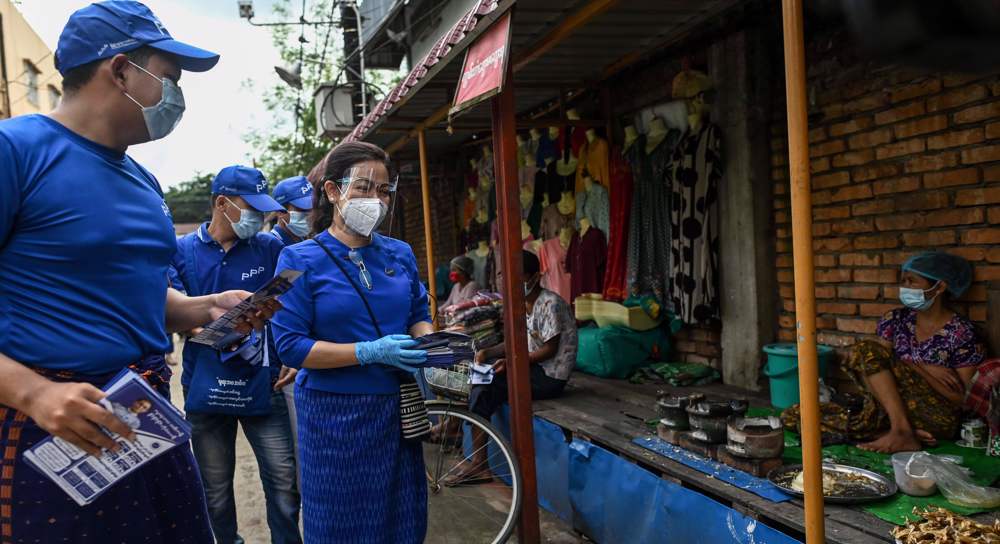Rights body questions integrity of upcoming Myanmar vote amid conflict, pandemic
An international rights organization has cast doubt on the integrity of the upcoming general elections in Myanmar, as tens of thousands of minorities in the Buddhist-majority country remain without the right to vote.
The International Commission of Jurists (ICJ) said in a statement on Wednesday that the situation in Myanmar raised questions about the integrity of the elections set for November, as access to information has been hampered due to internet restrictions and the coronavirus lockdown.
“Stay-at-home orders have compelled voters and electoral candidates to rely on social media for political campaigning,” it said. But slow connectivity to the internet in conflict-hit areas “significantly limits online engagement of affected communities,” it added.
The ICJ further called on the United Nations (UN)’s special rapporteur on human rights in Myanmar to “safeguard the integrity” of the poll and ensure that political rights are respected in the country.
The rights group also called on Myanmar’s electoral body to consider “appropriate alternatives” to in-person voting to avoid voters risking their health amid the pandemic.
On Tuesday, UN human rights investigator for Myanmar Thomas Andrews said the upcoming elections would fail to meet international standards because of the disenfranchisement of hundreds of thousands of Rohingya Muslims.
He said the polls could not be free and fair because of the exclusion of Rohingya of voting age living in the western Rakhine State and in refugee camps in neighboring Bangladesh.
“The results of an election cannot accurately reflect the will of the people when the right to vote is denied because of a person’s race, ethnicity, or religion,” he said in an address to the UN Human Rights Council in Geneva.
“And, I have seen no evidence that the government is willing or prepared to facilitate the right to vote for hundreds of thousands of voting age Rohingya located in Rakhine State or in refugee camps in Bangladesh,” he added.
Back in August, authorities in Myanmar disqualified six Rohingya politicians from contesting the general elections for the lack of ID documents.
At least a dozen Rohingya with Myanmarese citizenship had applied to run in the November 8 general elections. At least six of them were rejected after officials said they had failed to prove their parents were citizens at the time of their birth.
Thousands of Rohingya Muslims were killed, injured, arbitrarily arrested, or raped by Myanmar soldiers and Buddhist mobs mainly between November 2016 and August 2017 in what the UN has said was genocide. Some 800,000 other Rohingya survived only by fleeing to Bangladesh, where they live in cramped camps.
Another 600,000 Rohingya Muslims still remain in Myanmar under apartheid-like conditions, confined to camps and villages and denied access to healthcare and education.
The Rohingya are denied citizenship in Myanmar and considered illegal immigrants and will have no vote, despite their ancestral roots dating back centuries.
VIDEO | Report flags India’s violation of rights of Rohingya detainees
Turkey's foreign minister meets Syria's de facto leader in Damascus
'Next to impossible' to rescue patients from Gaza's Kamal Adwan Hospital: Director
VIDEO | Vietnam current prosperity
Report blames gasoil exports for shortage at Iranian power plants
VIDEO | Hind Rajab Foundation names Israeli war criminals vacationing after Gaza genocide
VIDEO | Australians rally for Gaza ahead of Christmas festivities
VIDEO | Attacks on Sana'a













 This makes it easy to access the Press TV website
This makes it easy to access the Press TV website